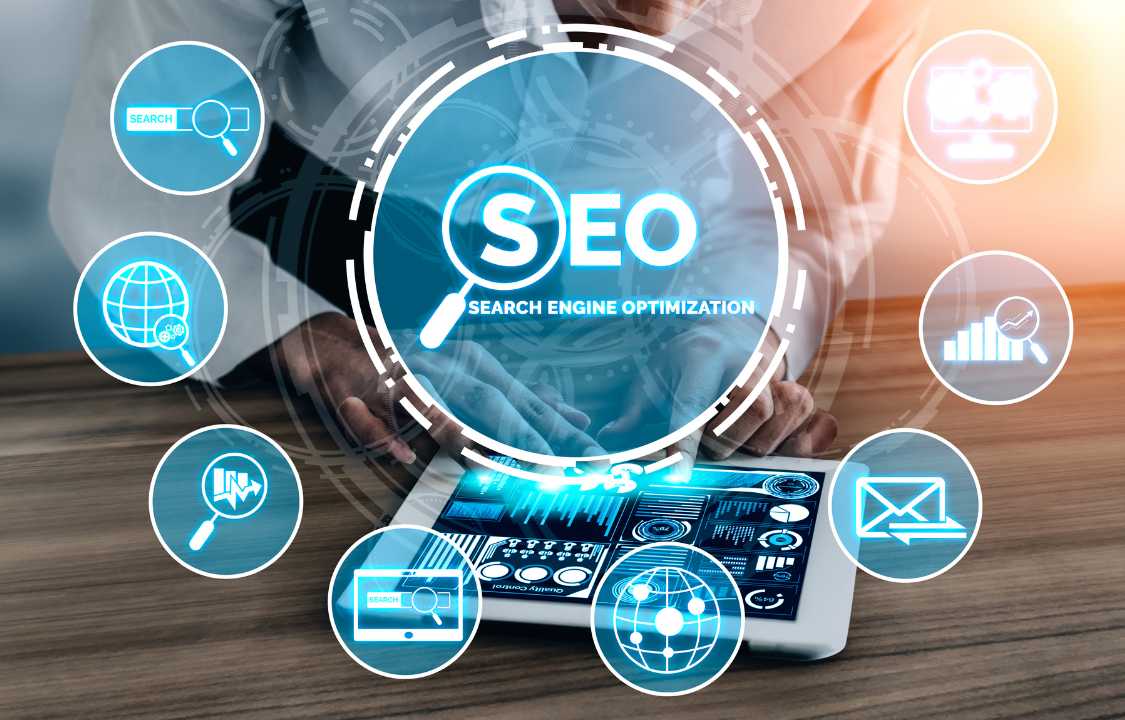The Future of Search Engine Optimization (SEO) is Here, Thanks to Artificial Intelligence.

by local
Search Engine Optimization (SEO) has always been a changing area, but it has changed a lot in the last few years, mostly because it has started to use artificial intelligence (AI). Website optimization strategies have evolved alongside the increasing intelligence and complexity of search engines. In this article, we’ll explore how AI is reshaping the world of SEO and what it means for businesses striving to improve their online visibility.
The Intersection of AI and SEO
AI and SEO have become intertwined in various ways, and this synergy is reshaping the landscape of digital marketing:
- Improved Search Algorithms: AI-driven algorithms are utilized by search engines like Google in order to provide users with more pertinent search results. AI analyzes user behavior, preferences, and search patterns to understand intent better, which helps search engines provide more accurate results.
- Voice Search Optimization: The rise of voice-activated assistants like Siri, Alexa, and Google Assistant has given birth to voice search. AI algorithms are critical in interpreting and responding to voice queries, which demand a different approach to keyword optimization.
- Content Creation and Optimization: AI-powered tools can generate content, optimize it for SEO, and even suggest keywords based on current trends and user intent. This helps businesses maintain a steady stream of relevant and engaging content.
- User Experience (UX) Enhancement: AI can analyze user behavior on a website, identify pain points, and suggest improvements. This leads to better website experiences, reduced bounce rates, and improved SEO rankings.
- Chatbots and Customer Service: Chatbots powered by AI can enhance user engagement and customer service, providing instant responses to queries and assisting visitors. Engaging website visitors can lead to higher conversion rates and improved SEO.
Key Ways AI is Impacting SEO
- Keyword Optimization: AI tools can analyze vast amounts of data to determine the most relevant keywords for a given topic or industry. This helps businesses refine their keyword strategies, target long-tail keywords, and improve content optimization.
- Content Generation: AI-driven content generators can create articles, product descriptions, and other written materials that are both coherent and SEO-friendly. This streamlines content production and ensures a consistent publishing schedule.
- Rank Tracking and Monitoring: AI-powered tools can continuously monitor search engine rankings, assess competitors, and provide actionable insights. This enables businesses to adapt their SEO strategies in real-time, keeping up with changing algorithms.
- Predictive Analytics: AI can predict SEO trends and user behavior, allowing businesses to proactively adjust their strategies. Predictive analytics can also help identify potential issues before they negatively impact SEO performance.
- Local SEO Optimization: AI algorithms can analyze local search patterns and user behavior to help businesses optimize their local SEO efforts. This is particularly valuable for brick-and-mortar businesses aiming to attract local customers.
- Link Building: AI can assist in identifying relevant, high-quality websites for link building and outreach efforts. This reduces the manual labor required for link-building campaigns while improving their effectiveness.
Challenges and Ethical Considerations
While AI brings substantial benefits to SEO, it also presents challenges and ethical considerations:
- Algorithm Bias: AI algorithms can inadvertently perpetuate biases present in training data. This could lead to unfair advantages for certain websites or content, raising ethical concerns.
- Privacy: The collection and analysis of user data for AI-driven SEO may raise privacy concerns. It’s essential to balance data-driven insights with respect for user privacy and compliance with regulations like GDPR.
- Quality Control: AI-generated content may lack the human touch and nuances that make content truly valuable. Maintaining quality while leveraging AI is a challenge that content creators must address.
Conclusion
AI’s impact on SEO is undeniable, and it’s reshaping the way businesses approach online visibility. SEO experts and organizations need to adapt to the always shifting market by utilizing the power of AI-driven tools and methods. This is necessary since search engines are continuing to develop and improve. Not only will businesses be able to improve their SEO efforts by embracing AI and its capabilities, but they will also be able to remain ahead of the competition in the rapidly evolving world of digital marketing.
Recommended Posts

4 Email Tips to Keep Customers Coming Back
June 15, 2024

How to optimize your website for a global audience using international SEO
September 15, 2022
